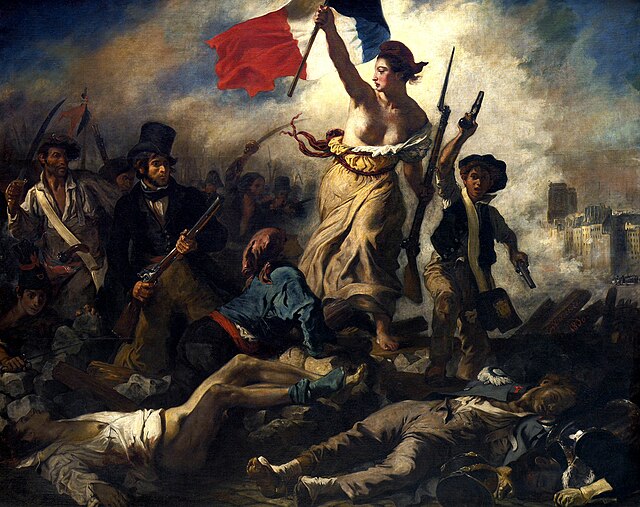A Vindication of the Rights of Woman
A Vindication of the Rights of Woman: with Strictures on Political and Moral Subjects (1792), written by British philosopher and women's rights advocate Mary Wollstonecraft (1759–1797), is one of the earliest works of feminist philosophy. In it, Wollstonecraft responds to those educational and political theorists of the eighteenth century who did not believe women should receive a rational education. She argues that women ought to have an education commensurate with their position in society, claiming that women are essential to the nation because they educate its children and because they could be "companions" to their husbands, rather than mere wives. Instead of viewing women as ornaments to society or property to be traded in marriage, Wollstonecraft maintains that they are human beings deserving of the same fundamental rights as men.
A Vindication of the Rights of Woman
Talleyrand, by Pierre-Paul Prud'hon
The Debutante (1807) by Henry Fuseli; "Woman, the victim of male social conventions, is tied to the wall, made to sew and guarded by governesses. The picture reflects Mary Wollstonecraft's views in The Rights of Women [sic]".
Liberty Leading the People by Eugène Delacroix (1833)
Mary Wollstonecraft was a British writer, philosopher, and advocate of women's rights. Until the late 20th century, Wollstonecraft's life, which encompassed several unconventional personal relationships at the time, received more attention than her writing. Today Wollstonecraft is regarded as one of the founding feminist philosophers, and feminists often cite both her life and her works as important influences.
Wollstonecraft c. 1797
Wollstonecraft in 1790–91, by John Opie
Frontispiece to the 1791 edition of Original Stories from Real Life engraved by William Blake
10 August attack on the Tuileries Palace; French revolutionary violence spreads








